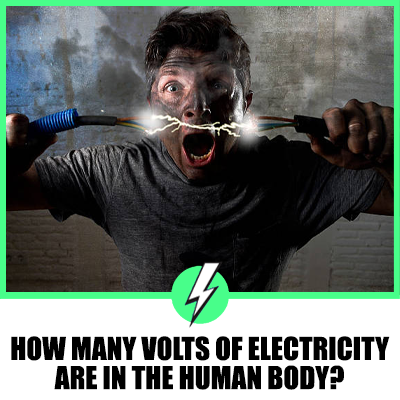How Many Volts of Electricity Are in the Human Body?
The human body is a marvel of nature.
It’s a complex system of organs, tissues, and cells, all working together to keep us alive and well.
One of the most fascinating aspects of the human body is its ability to generate and conduct electricity.
This electrical activity is crucial for our survival, powering everything from our heartbeat to our brain function.
But how much electricity is actually in the human body?
And what happens when that electricity is disrupted or altered?
Let’s delve into this electrifying topic.

Contents
The Electrical Potential of the Human Body
When we talk about the “voltage” of a human body, we’re really talking about the electrical potential energy per unit of charge that’s available for the flow of electrical current.
In other words, it’s a measure of the work done per unit of electric charge.
From a biological standpoint, the human body’s “voltage” isn’t a constant value; it can change based on various factors such as the health of the individual and the metabolic activity level.
How Much Electricity is in the Human Body?
The human body, according to some researchers, produces up to 100 watts of electricity at any given time.
This is enough to power a light bulb.
However, this doesn’t mean that you can plug a lamp into your ear and expect it to light up.
The electricity produced by the body is used by our cells to carry out their functions.
What Can 1000 Volts Do to a Human?
The effect of electric shock on a person depends not only on the voltage but also on the current (amperes) and the duration of exposure.
A brief shock with a high voltage can cause burns and nerve damage.
A prolonged shock can cause heart fibrillation and damage to other organs.
At 1000 volts, the skin resistance breaks down, and the current can cause severe burns and may trigger ventricular fibrillation, a dangerously irregular heart rhythm.
How Many Volts Does It Take for a Human to Feel?
The human body can feel an electric shock with as little as 1 milliampere (mA) of current, which can be produced by a voltage as low as about 50 volts.
The sensation of an electric shock can range from a slight tingle to severe burns and heart failure, depending on the current and duration of exposure.
Insights from Online Discussions
Online discussions reveal a range of perspectives and experiences related to the topic of electricity in the human body.
Some users on Reddit, for example, have discussed the concept of voltage in a cell, explaining that it refers to the electrical potential across the membrane of a cell, which varies by cell.
Others have pointed out that the average potential difference across a cell membrane is about -70 mV, or 0.07 volts.
The Role of Electricity in the Human Body
The human body uses electricity in several ways.
For example, our nervous system uses electricity to send signals between cells.
When a neuron is stimulated, it generates an electrical impulse that travels along the nerve fiber.
This impulse triggers the release of neurotransmitters, which carry the signal to the next neuron.
Our hearts also use electricity.
A group of cells in the heart, known as the sinoatrial node, generate an electrical signal that spreads through the heart muscle, causing it to contract and pump blood.
The Dangers of External Electricity
While the electricity generated by our bodies is essential for life, external sources of electricity can be harmful or even deadly.
For example, exposure to a high-voltage electrical current can cause severe burns and damage to internal organs.
It can also disrupt the electrical signals in our hearts, leading to cardiac arrest.
Conclusion
In conclusion, the human body is a complex electrical system with the ability to generate and conduct electricity.
The amount of electricity or voltage in the human body can vary, but even a small amount can have significant effects.
Understanding this can help us appreciate the intricate workings of our bodies and the importance of safety when dealing with electrical devices.
Whether you’re in the UK or the US, it’s important to understand the electrical nature of our bodies and how it impacts our health and wellbeing.





